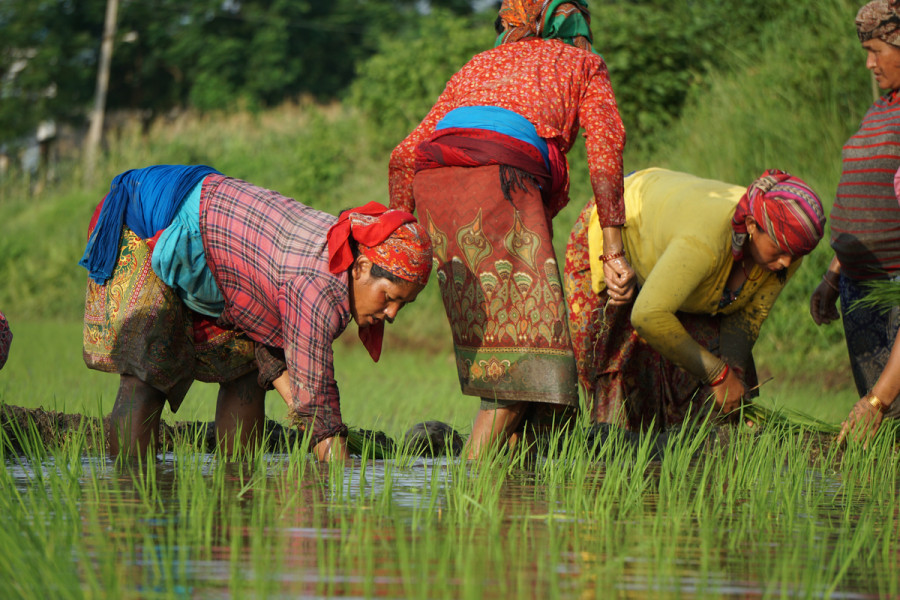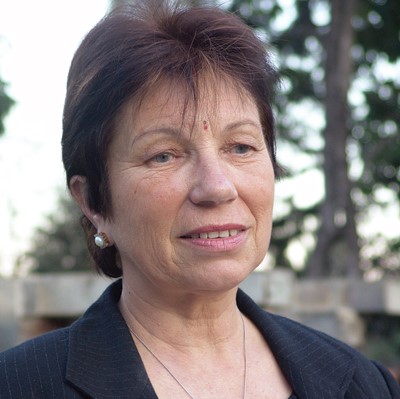Columns
Women’s contributions to development
Modernism and globalisation are impacting Nepal’s social and economic scenarios.
Greta Rana
So much has been written about women’s contributions to economic development in Nepal, it seems superfluous to add to the writings of so many distinguished authors. Still, it deserves more examination. Not so long ago, even in the so-called ‘enlightened Britain’ of that time, women had to struggle to gain any recognition for economic contributions. World War II had brought women out of the kitchen, and they didn’t want to go back; but it was a far cry from real equality. In Nepal, women worked in the fields. It was an accepted fact, but the deep thoughts came during International Women’s Year 1975.
That year, Dr Lynn Bennett and a team of very talented Nepali women published The Status of Women in Nepal. It was funded by the Ford Foundation and they worked out of the Centre for Economic Development at Tribhuvan University. It had groundbreaking revelations and should be read by everyone involved in women in development even today. What was astounding was a time allocation study showing just how many hours a day Nepali women worked the land or in the offices and the home, when nowadays the United States pays housewives for their labour. Imagine that.
Domestic schedule
For the Nepali woman farmer, her domestic schedule is more like get up, fetch water, pray, prepare the morning meal, send the children to school, and work 7 hours in the fields. After this, come home, fetch the wood, fetch more water, prepare the evening meal, feed everyone else first, eat last, wash the dishes, get the children to bed, and finally sleep, sometimes very late at night, only to rise again at about 4 or 5 in the morning and, once more, fetch the water. Despite the extension of water lines and electricity, an alarming number of women still have to live like that. The communal water pumps, smokeless stoves and peltric sets are still out of reach for them.
Much of this was discussed at the first meeting of the newly established International Centre for Integrated Mountain Development (ICIMOD). The topic was entrepreneurship. It was enlightening. Women bewailed that if they rose in their professions, even other women accused them of being chummy with the boss. It can never be because she is hardworking and talented. That’s not just how Nepal sees it, it’s as the world sees it, and, although it’s changing now, women still have many victories to gain.
At the conference was Vandana Shiva, a brilliant physicist who became very involved in the Chipko movement in India and one of the early promoters of environmental preservation in that country. She inspired many women there who became Nepal’s prime movers in the field of women’s development. Ester Boserup’s Woman's Role in Economic Development became the book for women to read. One statement at odds with women workers’ observations in Nepal, however, is when she states that childbearing was a work substitute. Yet the women in Nepal sometimes have seven or eight children, and still work the land. Birth rates are falling, thanks to family planning; but there are still ‘miles to go before we sleep’.
Later studies in developing countries showed that when women have extra cash, they spend it on nurturing children and improving their education, clothing and food. What greater contribution to the economic development of a country like Nepal? Multiple marriages are now against the law, but some men still have as many as four or five, yes five, wives. Why? One ‘democratic’ male commented at a university seminar in 1975, ‘If you have so much land. It’s cheaper to marry them. They give you a lifetime’s labour and you don’t have to pay daily wages. When you have a lot of land, feeding them is not a problem’.
What an attitude towards the women who work the land and bear children!
The immense contribution that women give shows in the paucity of appliances and the outmoded utensils they work with even today. Museums everywhere invariably have a quern or flat iron to show how housewives had to labour in the ‘bad’ old days. Yet, village households all over Nepal still have querns and flat irons. What a great boon if some government project emerged to give each village at least one washing machine. There’s more electricity now, why not? Another idea, what if those great development aid projects provided microwave ovens to village households? What a development using energy from long-dead stars to relieve women of kitchen drudgery and smoke.
Women entrepreneurs contribute a great deal, and Nepal has pioneers indeed. Not only internally, but worldwide too Nepali women are now being recognised for their invaluable contributions. Bandana Rana is a case in point. Her work with women has earned her a second term on the UN’s CEDAW, the Committee on the Elimination of Discrimination Against Women. What an honour not only for Bandana but also for all the women of Nepal, a mark of their role in development per se not just economic, but all round.
Labour-exporting hubs
Modernism and globalisation, being inalienable phenomena, are impacting Nepal’s social and economic scenarios and opening up a world of opportunities for Nepali women. In the process of a major transition, we can also visualise the challenges that are coming through deeper global integration. Cross-border migration, concerning women from disadvantaged sections, remains a pressing issue. We have also seen how the rural hinterlands have become labour-exporting hubs. The trend is worrisome, and it has a clear gender angle too with women at centre stage of existential challenges back at home.
In reciprocation of women’s remarkable contributions to economic development in Nepal, government policies and actions should be directed at creating more productive opportunities in the country and retaining youth in the homeland for sustainable development. No matter how far Nepal has come as a modern republic, the task is still unfinished when it comes to securing an inclusive framework of governance and economic distribution. Under a progressive framework, Nepal’s democracy should create bigger room for a participatory system with a focus on emancipation of all. Without an iota of doubt, this will be a sort of transformation, and women have to play their part.
***
What do you think?
Dear reader, we’d like to hear from you. We regularly publish letters to the editor on contemporary issues or direct responses to something the Post has recently published. Please send your letters to [email protected] with "Letter to the Editor" in the subject line. Please include your name, location, and a contact address so one of our editors can reach out to you.




 18.12°C Kathmandu
18.12°C Kathmandu















